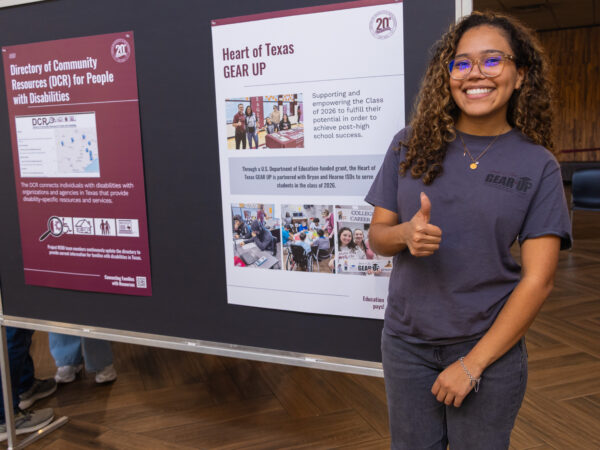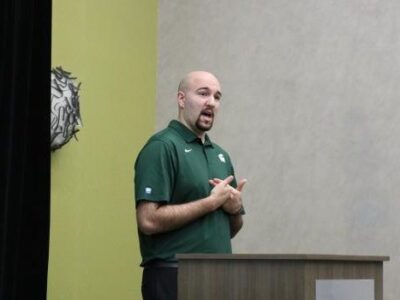Telepractice delivers services to parents of children with autism
Close to 1 in 54 children has been identified with autism spectrum disorder. 31% of children with autism have an intellectual disability. While there is no medical detection for autism, there are early interventions to improve learning, communication and social skills over the lifespan.
However, there are numerous barriers for families to participate in interventions. Many interventions are costly, time-consuming and not accessible for rural families or non-English speaking families.
One solution to overcoming barriers is through telepractice. The Coach to Communicate program in the Department of Educational Psychology adopted this nontraditional method to deliver services to parents of children with autism, including offering services in Spanish.
“Telepractice allows us to coach families via online tools with no cost for travel and no time lost in traveling. The coach can meet with parents at any time convenient to both, through a computer, smartphone or tablet,” said Dr. Sanikan Wattanawongwan, a postdoctoral researcher in EPSY. “Telepractice also minimizes exposure to disease during the COVID-19 pandemic by allowing us to provide services to families without direct contact.”
Through C2C, coaching sessions are provided to families using Zoom. Over the course of three months, parents are involved in 10 online meetings where they are taught various techniques, such as incentivizing communication, to help improve their child’s social communication skills.
The researchers set communication goals and developed a treatment plan for each child after the initial interview session with parents. Each week, parents are required to record and upload a three minute video before the Zoom session. This provides the researchers a look at how the child is reacting to the interventions.
During each telepractice session, researchers provide parents feedback on specific ways to improve communication with their child based on the uploaded videos. During the next week, parents implement those suggestions as much as possible.
“Parents reported that they appreciated receiving encouragement and motivation from the coach, spending more time with their children and having the flexibility to set their own schedule to meet with the coach via an online program.”
Findings from several studies involving C2C indicate telepractice parent coaching has a positive impact on child outcomes.
Wattanawongwan said another key finding is that children maintained these communication skills over a month past the end of the intervention study.
“The growth observed throughout the telepractice coaching intervention is indicative that long distance, short-term, individualized coaching of authentic communicative partners can have positive outcomes that can be maintained following cessation of treatment and can generalize to untargeted child communication behaviors,” said Wattanawongwan.
The C2C program is free to caregivers of children with autism spectrum disorder, from birth to age 22. English and Spanish-fluent coaches are available. If you are interested in participating in the Coach to Communicate program, visit the C2C website for more information.
About the Writer
Ashley is the Media Relations Coordinator and responsible for news coverage in the Department of Teaching, Learning and Culture as well as the Department of Educational Psychology.
Articles by AshleyFor media inquiries, contact Ashley Green.













